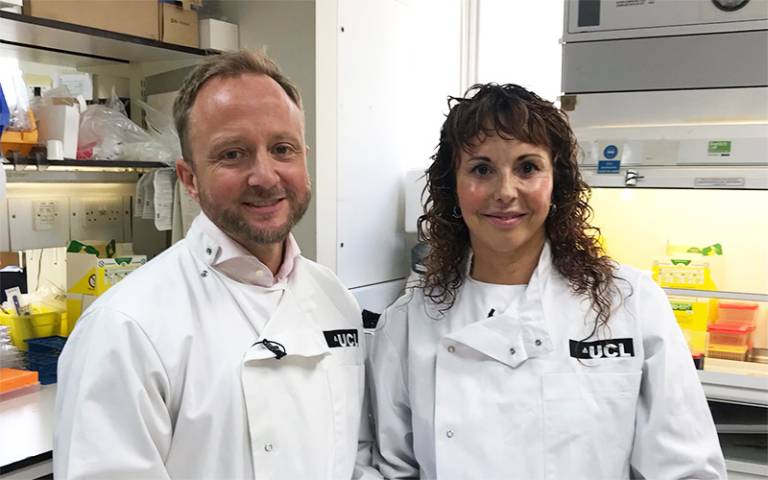Landmark Trial Offers New Hope for Huntington’s Disease
A groundbreaking clinical trial has shown that a single gene therapy treatment can dramatically slow the progression of Huntington’s disease, a rare and devastating neurodegenerative disorder. The results, released this month, are being hailed as a turning point for patients and families worldwide.
What Is Huntington’s Disease?
Huntington’s disease (HD) is a genetic disorder that causes the progressive breakdown of nerve cells in the brain, leading to involuntary movements, cognitive decline, and psychiatric symptoms. It affects about 4.88 per 100,000 people globally, with higher rates in Europe and North America . Symptoms typically begin between ages 30 and 50, and the disease is inherited in an autosomal dominant pattern—meaning a child has a 50% chance of inheriting the faulty gene if one parent is affected .
Also Read: Senator John Thune Highlights Importance of Science-Based Policy in Tylenol Safety
Gene Therapy Slows Disease by 75%
The most significant advance in recent months is the success of the AMT-130 gene therapy, developed by uniQure. In a Phase I/II clinical trial, patients who received a single neurosurgical infusion of AMT-130 experienced a 75% slowing of disease progression compared to expected rates. This means that the decline typically seen in one year could now take four years, potentially extending quality of life by decades .
“We never in our wildest dreams would have expected a 75% slowing of clinical progression.”
— Prof. Sarah Tabrizi, University College London Huntington’s Disease Centre
The therapy works by delivering a DNA sequence into the brain that enables cells to produce microRNA, which silences the mutant huntingtin gene—the root cause of HD. The treatment was considered safe, with manageable side effects, and its effects are expected to be long-lasting since brain cells are not regularly replaced .
New Approaches: Precision Gene Editing and Early Detection
Beyond AMT-130, researchers are exploring allele-selective gene editing. Life Edit’s LETI-101 program uses advanced CRISPR technology to target only the mutant copy of the huntingtin gene, preserving the healthy version. In animal studies, this approach reduced mutant protein levels by up to 80% with no adverse effects, and it is designed as a one-time, durable treatment .
Early detection is also improving. A 14-year study confirmed that neurofilament light (NfL), a protein released by damaged brain cells, rises years before symptoms appear, offering a potential blood biomarker for earlier diagnosis and intervention . Additionally, sleep disturbances have been identified as an early sign, sometimes occurring up to 15 years before other symptoms .
Also Read: Senator John Thune Highlights Importance of Science-Based Policy in Tylenol Safety
Other Treatments and Ongoing Research
While there is still no cure for Huntington’s disease, several drugs help manage symptoms. Tetrabenazine and deutetrabenazine are used for involuntary movements, while antipsychotics and antidepressants address psychiatric symptoms . New oral drugs like SKY-0515 are in advanced trials, aiming to lower huntingtin protein levels safely .
“While there is no cure for Huntington’s disease, there are a few medications that can help improve symptoms. For example, tetrabenazine is recommended as a first-line pharmacologic treatment for Huntington’s disease chorea.”
— Dr. Lisa Toran, neurologist, Confluence Health
Advocacy and Support
Patient advocacy groups such as the Huntington’s Disease Society of America (HDSA) and the Huntington Study Group (HSG) play a vital role in supporting families, funding research, and connecting patients to clinical trials . Personal stories and support networks help families navigate the challenges of HD and foster hope as new treatments emerge .
A Turning Point for Patients
The recent breakthroughs in gene therapy and precision medicine mark a historic shift in Huntington’s disease research. Experts are optimistic but caution that further studies and regulatory review are needed before these treatments become widely available .
“This study and the work it informs could be impactful and make a major difference in relieving suffering in the short term.”
— Sabina Berretta, associate professor of psychiatry, Harvard Medical School
For now, the HD community is celebrating a milestone that brings real hope for slowing, and perhaps one day stopping, this relentless disease.
Also Read: Joshua Jahn Identified as Sniper in Deadly Dallas ICE Facility Shooting
External Resources:
- Huntington’s Disease Society of America
- HDBuzz: Latest HD Research News
- BBC News: Gene Therapy Slows Huntington’s Disease
- uniQure AMT-130 Clinical Trial Update
All information has been cross-verified with reputable medical news sources and leading research organizations.
